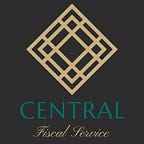Strategies for Managing Business Cash Flow Effectively
Managing cash flow is crucial for the success and sustainability of any business. Cash flow refers to the movement of money in and out of a company, encompassing both incoming revenues and outgoing expenses. Efficient cash flow management ensures that a business can cover its financial obligations, seize growth opportunities, and navigate potential challenges. In this blog post, we will explore effective strategies for managing business cash flow.
Monitor and Forecast Cash Flow:
Regularly monitor your cash flow by analyzing your financial statements, including balance sheets, income statements, and cash flow statements. This helps identify patterns, trends, and potential issues. Additionally, create a cash flow forecast to estimate future inflows and outflows, allowing you to anticipate and plan for any gaps or surpluses.
Accelerate Inflows:
Implement strategies to accelerate the collection of receivables. Offer incentives for early payments, use automated invoicing systems, and establish clear payment terms with your customers. Consider offering multiple payment options, such as online payment gateways, to expedite the payment process and reduce outstanding balances.
Optimize Outflows:
Manage your payables effectively to optimize cash outflows. Negotiate favorable payment terms with suppliers, such as extended payment terms or discounts for early payments. Regularly review expenses to identify areas for cost savings and consider negotiating better deals with vendors.
Build Cash Reserves:
Maintain a cash reserve to cushion your business during lean periods or unexpected expenses. Set aside a portion of your profits as retained earnings to build up this reserve. This provides a safety net and reduces the need for short-term borrowing, which can strain cash flow.
Manage Inventory and Production:
Avoid tying up excess cash in inventory by optimizing your inventory management. Analyze demand patterns and adjust your production accordingly to avoid overstocking or stockouts. Implement just-in-time inventory practices to reduce carrying costs and improve cash flow efficiency.
Control Expenses:
Regularly review your expenses and identify areas where you can cut costs without sacrificing quality or efficiency. Look for opportunities to streamline operations, negotiate better deals with suppliers, or explore alternative vendors. Implement cost control measures to ensure your expenses align with your revenue and cash flow.
Establish a Line of Credit:
Secure a line of credit with your financial institution to serve as a backup source of funding during cash flow shortages. However, use this option judiciously and only for short-term needs to avoid excessive reliance on debt.
Effectively managing business cash flow is crucial for maintaining financial stability and enabling growth. By monitoring and forecasting cash flow, accelerating inflows, optimizing outflows, building cash reserves, managing inventory, controlling expenses, and establishing a line of credit, businesses can maintain a healthy cash flow position. Implementing these strategies will help ensure that your business can meet its financial obligations, seize growth opportunities, and navigate potential challenges successfully.
